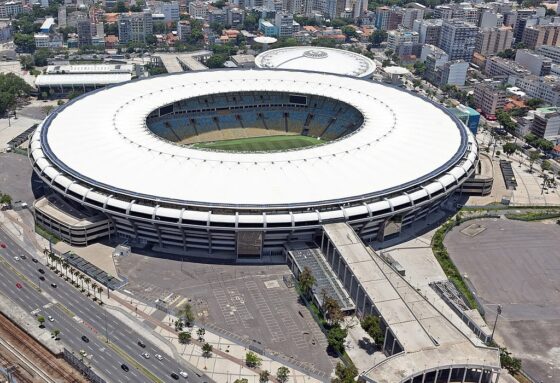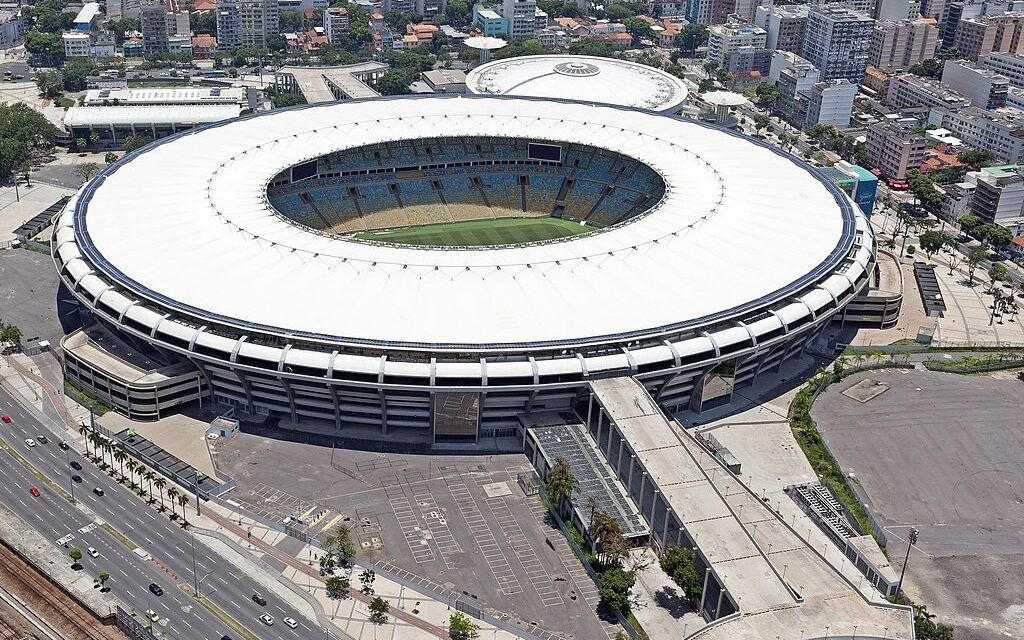 * Maracanã Stadium/Rio – The FIFA World Cup is played every four years and is made of up 32 teams from all around the world. The tournament is broken up into two different stages:
* Maracanã Stadium/Rio – The FIFA World Cup is played every four years and is made of up 32 teams from all around the world. The tournament is broken up into two different stages:
The Group Stage – The teams are broken up into 8 groups/pools lettered A through H, with each one of the groups having four teams. Each team in a group will play the other three teams in that group one time. Only the two best teams of each group go to the knockout stage.
The Knockout Stage – The knockout tournament is also known as a single elimination tournament. If a team win, continues to the next game, if loose, are eliminated. For a team reach the final is necessary win all the games during the knockout stage up to the final game. There is also a consolation game to decide the 3rd and 4th place.
The road to Rio de Janeiro for the World Cup Final will features games in 12 venues throughout Brazil and billions of dollars in constructions and renovations. The total cost is expected to be near $11 billion, with $3.4 billion on stadiums, well exceeding the combined spending for the World Cup in Germany in 2016 and South African in 2010. There have been six fatalities during constructions. Several protests took place in different locations in Brazil by part of Brazilian population during 2013 and this first semester of 2014 against the expenses with infra-structure by the Brazilian government and in favor of more health and education.
Besides the social issues (and we defend the protests but without violence), Brazilians are passionate about soccer and like they say in Brazil “The English invented soccer, but we perfect it”. Brazil is a nation of soccer lovers that includes 198 million residents, making it the fiftymost populous country in the world, and that number doesn’t even count the larger number of Brazilians who live abroad, an estimated of 1.1 million in the U.S alone.
The Cities and the Stadiums: Arena Amazonia (Manaus), Estadio Castelao (Fortaleza), Estadio das Dunas (Natal), Arena Pernambuco (Recife), Arena Fonte Nova (Salvador), Estadio Nacional (Brasilia), Estadio Mineirao (Belo Horizonte), Arena de São Paulo (Sao Paulo), Arena da Baixada (Curitiba), Estadio Beira-Rio (Porto Alegre). Arena Pantanal (Cuiaba), and the Estadio do Maracana (Rio de Janeiro).
The final of the 2014 World Cup will take place in the heart of ‘Cidade Maravilhosa” (Rio de Janeiro) at the iconic Maracanã Stadium – a true monument in the history of soccer. Built in 1950 for the World Cup that Brazil lost in the final against Uruguay, and remodeled for this World Cup, it boast impressive architecture, sizeable seating capacity and has been the setting of some of the most legendary unforgettable moments in the World Cup history. Rio is the second largest city in Brazil and the third largest metro area in South America with a population of 6.3 million. The city also will host the 2016 Summer Olympic Games.
If you don’t know, we have an events page or our CALENDAR that we update it twice a week, and can be as a great resource for you to find interesting general FREE events (including Christmas events during december) as well as Brazilian events in Southern California.













